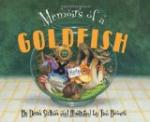In the same way what time I have at my disposal to cultivate new acquaintances I devote not to the merely rich and prosperous but to the multi-millionaire—if I can find him—who does not even know the size of his income. I have no time to waste on the man who is simply earning enough to live quietly and educate his family. He cannot throw anything worth while in my direction; but a single crumb from the magnate’s table may net me twenty or thirty thousand dollars. Thus, not only for social but for business reasons, successful men affiliate habitually only with rich people. I concede that is a rather sordid admission, but it is none the truth.
* * * * *
Money is the symbol of success; it is what we are all striving to get, and we naturally select the ways and means best adapted for the purpose. One of the simplest is to get as near it as possible and stay there. If I make a friend of a struggling doctor or professor he may invite me to draw his will, which I shall either have to do for nothing or else charge him fifty dollars for; but the railroad president with whom I often lunch, and who is just as agreeable personally, may perhaps ask me to reorganize a railroad. I submit that, selfish as it all seems when I write it down, it would be hard to do otherwise.
I do not deliberately examine each new candidate for my friendship and select or reject him in accordance with a financial test; but what I do is to lead a social and business life that will constantly throw me only with rich and powerful men. I join only rich men’s clubs; I go to resorts in the summer frequented only by rich people; and I play only with those who can, if they will, be of advantage to me. I do not do this deliberately; I do it instinctively—now. I suppose at one time it was deliberate enough, but to-day it comes as natural as using my automobile instead of a street car.
We have heard a great deal recently about a so-called Money Trust. The truth of the matter is that the Money Trust is something vastly greater than any mere aggregation of banks; it consists in our fundamental trust in money. It is based on our instinctive and ineradicable belief that money rules the destinies of mankind.
Everything is estimated by us in money. A man is worth so and so much—in dollars. The millionaire takes precedence of everybody, except at the White House. The rich have things their own way—and every one knows it. Ashamed of it? Not at all. We are the greatest snobs in the civilized world, and frankly so. We worship wealth because at present we desire only the things wealth can buy.
The sea, the sky, the mountains, the clear air of autumn, the simple sports and amusements of our youth and of the comparatively poor, pleasures in books, in birds, in trees and flowers, are disregarded for the fierce joys of acquisition, of the ownership in stocks and bonds, or for the no less keen delight in the display of our own financial superiority over our fellows.




